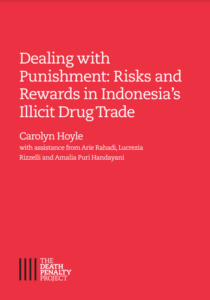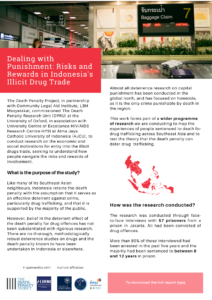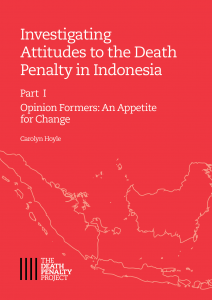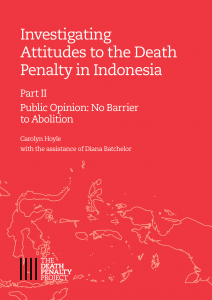Dealing with Punishment: Risks and Rewards in Indonesia's Illicit Drug Trade
- Reports and Studies
- 18 Apr 2023
In 2020-2021, The Death Penalty Project, in partnership with Community Legal Aid Institute, LBH Masyarakat, commissioned The Death Penalty Research Unit (DPRU) at the University of Oxford, in association with University Centre of Excellence HIV/AIDS Research Centre-HPSI at Atma Jaya Catholic University of Indonesia (AJCU), to conduct the research building empirical knowledge on who is being convicted for drug offences and uncover the factors that have influenced their motivations and decision making. Interviews were conducted on 57 prisoners from a prison in Jakarta, Indonesia, all convicted for drug offences.
Key findings:
- The majority convicted for drug related crimes were not well educated; more than half (57%) had not completed high school
- Most were not in stable or well-paying jobs and just less than half (47%) were unemployed
- The majority were making money from the illicit drug trade, not from lawful employment
- Most had used drugs before their arrest, with many preceding into drug couriering, selling, or trafficking
- Almost all were financially motivated – most needed money for basics and their dependents
Many were experienced in the illicit drug trade:
- A quarter had been involved in some form – mainly in relatively minor roles
- Almost half had prior convictions
- Almost a quarter had been convicted of the same offence at least once
This is the first stage of a larger mapping project, which will interview those convicted of drug offences and sentenced to death or life in prisons across Indonesia and Southeast Asia. It also compliments our two part opinion study on attitudes on capital punishment in Indonesia.




